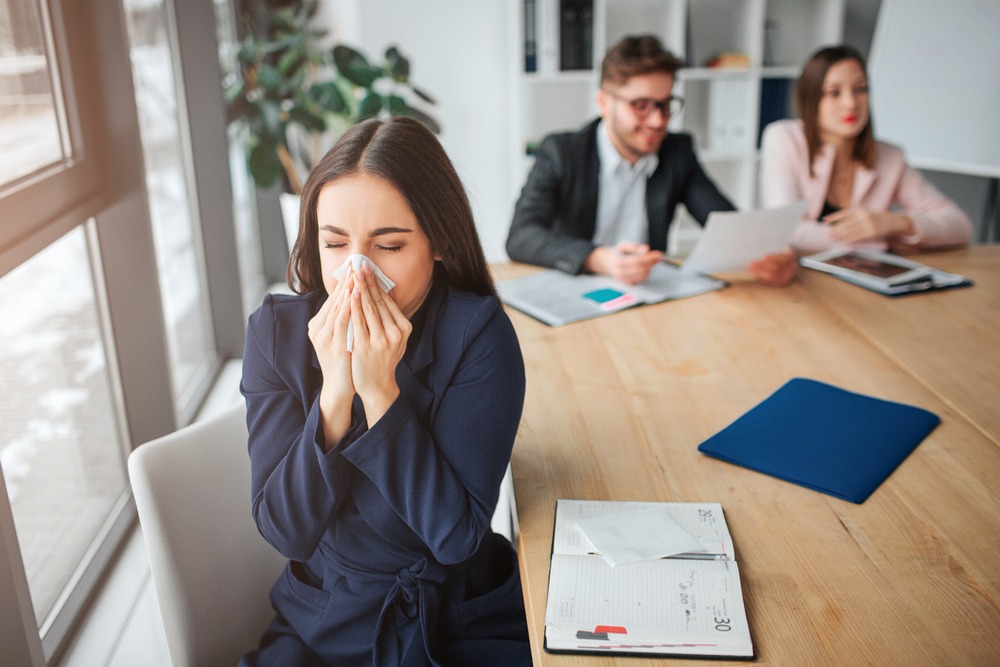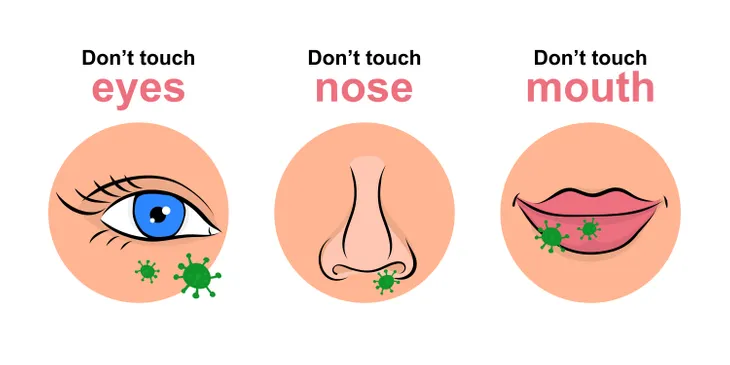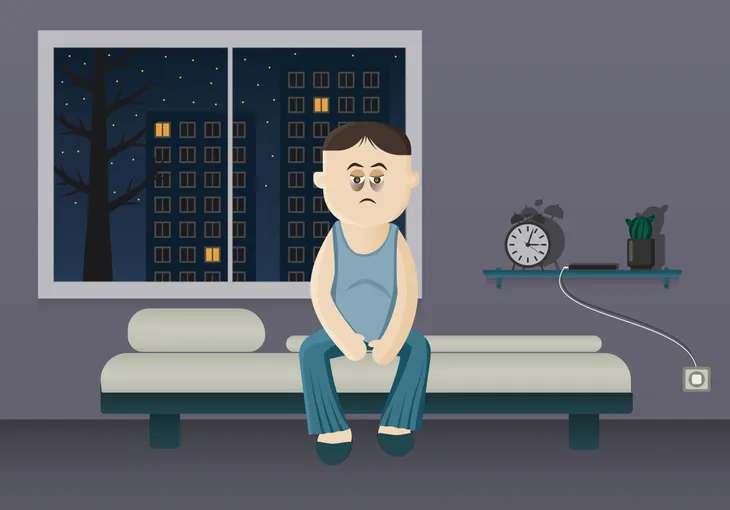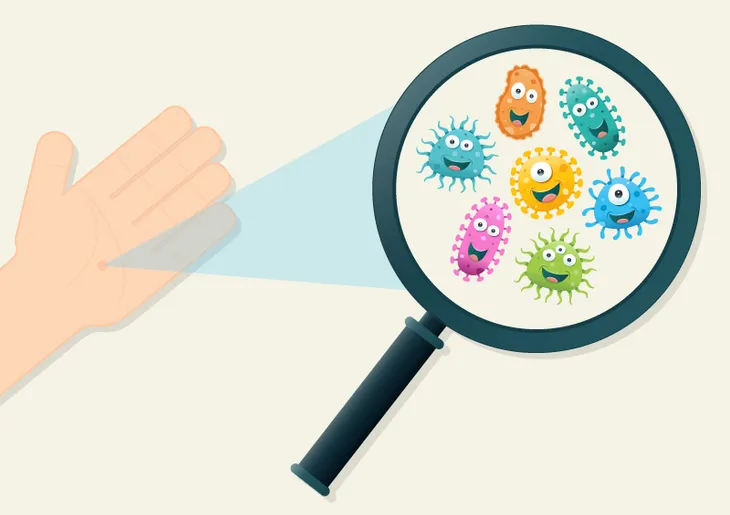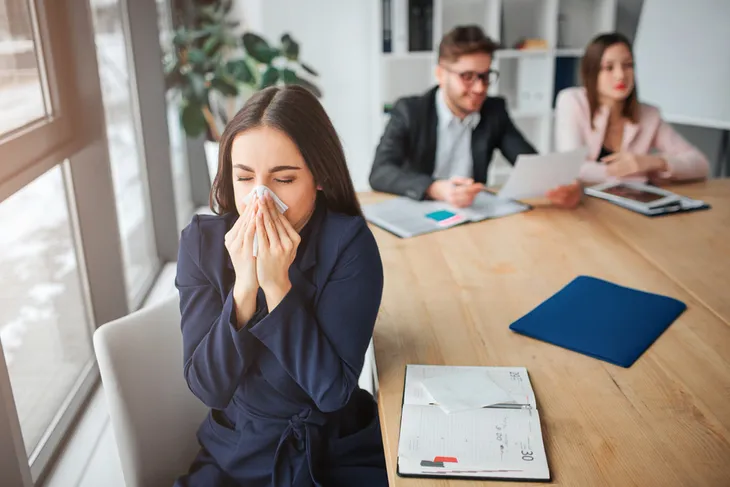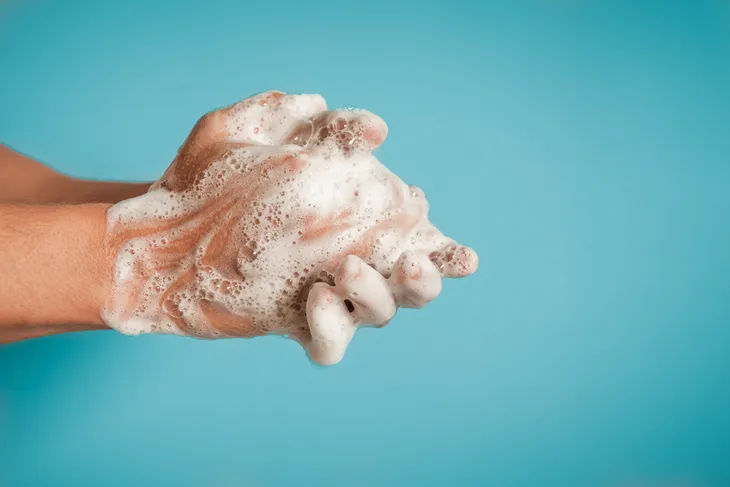Do you get a cold like clockwork, year after year? If you do, chances are you unwittingly performing a few of these cold-welcoming habits. It’s time to stop shaking hands and going to work sick (despite what your employer says) and to start washing those hands properly and getting adequate sleep.
Here are seven ways you’re begging to catch a cold this fall and winter…
You’re a Stress Case
A few days of stress won’t sentence you to a cold. However, if you constantly put yourself in a state of stress—between unreasonable work, family, and social obligations—you will inevitably wear yourself down.
According to a study featured in Psychology Today, stress places undue stress on the immune system, which leads to an inability to fight off germs and viruses. The study from Carnegie Mellon University found that cortisol, or stress hormone, damages the immune system, meaning if you’re stressed, you’ll fall sick more often than those with normal stress levels.
You’re a Constant Face-Toucher
Think about how many times you touch your face throughout the day—when you scratch your nose, pinch your lip, cradle your chin, and rub your eyes—germs are migrating from your fingers to your face.
Whenever your hands or fingers come into contact with your mucous membranes (mouth, nose, or eyes) you’re giving germs a free pass to infiltrate your body and make you sick. So do yourself a favor and keep your hands off yourself!
You Insist on Shaking Hands
Formerly, and in a business setting, the handshake remains a go-to greeting. However, clasping hands with strangers opens you up to their germs. Who knows if David sneezed in the car on the way to your meeting, or gasp, picked his nose!
You’ll never know. Instead, try a fist bump or a good old fashioned verbal greeting, and if you have to tell them you’re coming down with something to avoid the hand shaking. It’s the best way to keep yourself safe from catching their germs.
You Skimp on Shut-Eye
Do you skimp on sleep? If so, then you are putting yourself at a higher risk for catching a cold. According to the Journal of Sleep, “people who don’t sleep enough are at a higher risk for developing colds,” reported Newsweek.
The study found that people who slept less than six hours every night were four times more likely to catch a cold than those who slept seven or more hours every night. “Participants who slept even less — five or fewer hours each night were 4.5 times more likely to develop a cold,” said the source. So make sure to get your sleep to stay healthy!
You Expose Yourself to Germs
Sure, germs are invisible to the naked eye, however, they’re rampant on people, surfaces, and even transmitted via our own hands. Think about your commute to work this morning. Did you happen to touch a stair railing, door handle, and your smartphone?
Those surfaces are virtually teeming with germs. So before you grab lunch, wash those hands thoroughly. Or if you come into contact with a sick co-worker or child, wash your hands before you make dinner.
You Go to Work Sick
Maybe your employer is one of those nasty dictators who expects you to drag your sick self to work to complete whatever routine report that can, in reality, wait until you’re feeling better. If that’s the case, you may feel this point is out of your control.
It’s unfortunate that we live in a world where coming to work sick is construed as a badge of loyalty. In reality, and according to the Archives of Environmental & Occupational Health, if just one employee goes to work sick, germs cover more than 50-percent of all communal areas in an office (including the hands of fellow employees) within 4-hours.
You Don’t Wash Up Properly
Do you recite the alphabet when you wash your hands, all the way from A to Z? Most adults perform a quick-splash in the sink after a trip to the public restroom, which significantly increases the risk of contracting a cold.
Centers for Disease Control health officials claim adequate washing includes lathering the hands with soap and running water for 20-seconds, or longer. However, in the absence of a public restroom, using an alcohol-based hand sanitizer gel will reduce chances of illness by 60-percent.
